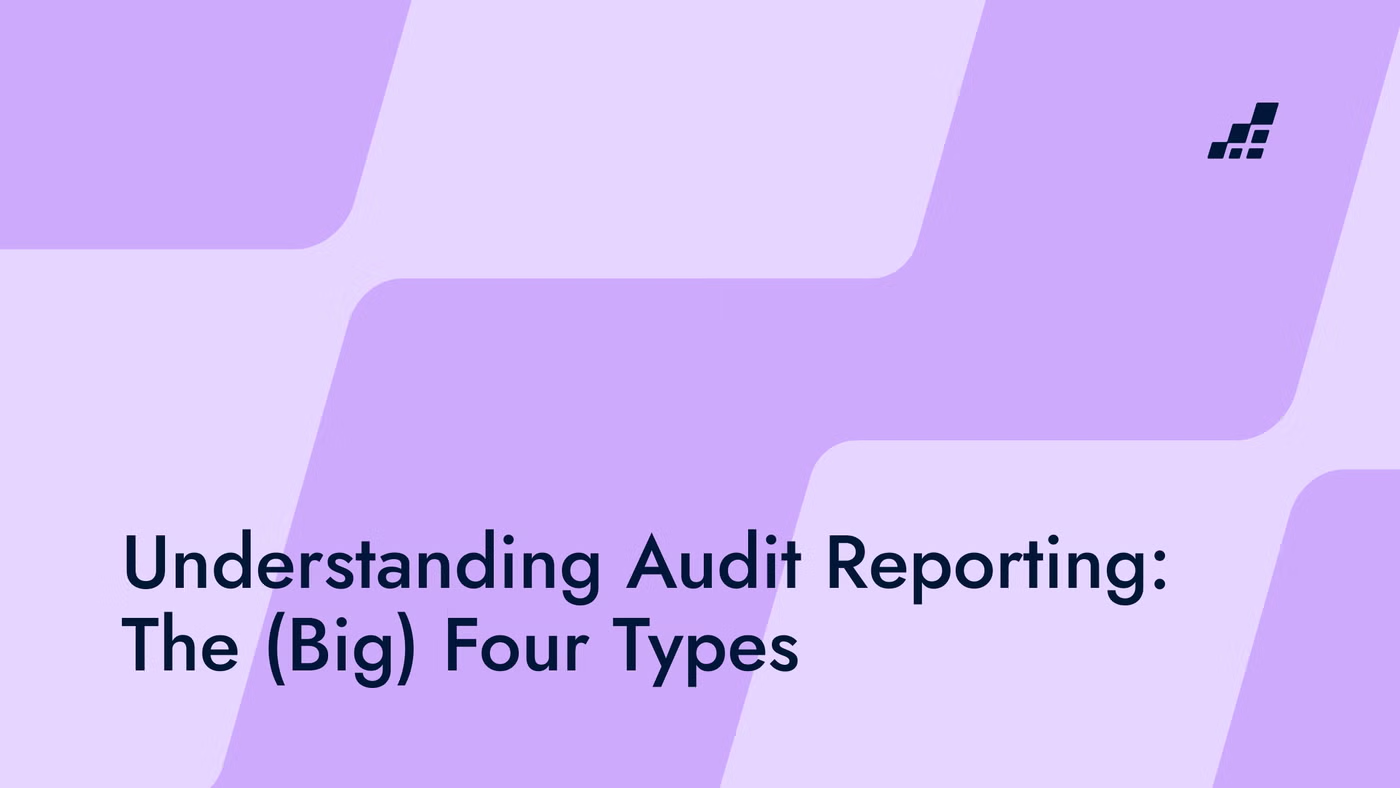- /
- Blog
Understanding Audit Reporting: The Four Types

I’m 99% sure you’ll already know this, but heck….
It follows a standard format defined by generally accepted audit standards (GAAS). It generally includes the auditor's report, management's responsibility for the financial statements, the auditor's responsibility, and the auditor's opinion.
What’s the Purpose of an Audit Report?
The purpose of an audit report is to provide an independent assessment of an organization’s financial statements and financial reporting to ensure transparency and accountability.
The outcome of an audit is communicated through an audit report, which contains the auditor's opinion. This opinion is categorized into four types, each with its own implications.
The Four Types of Audit Opinions
There are four types of audit opinions: unqualified, qualified, adverse, and disclaimer of opinion. Each type reflects a different level of assurance and has distinct implications for the audited entity. Let’s break them down.
Unqualified Opinion
It indicates that the auditor found the financial statements to be fairly presented in all material respects, as required by the applicable financial reporting framework.
When an auditor issues an unqualified opinion, they have found no material misstatements during the audit.
It also implies that the company has adhered to the generally accepted accounting principles (GAAP) when preparing its financial statements.
Qualified Opinion
A qualified opinion is issued when the auditor has identified material misstatements in the financial statements, but these misstatements are not pervasive.
In simpler words, the financial statements are still largely reliable despite the identified issues.
This type of opinion is also issued when the auditor cannot obtain sufficient audit evidence for a specific aspect of the financial statements. Still, the potential impact of the missing information is not pervasive.
Adverse Opinion
An adverse opinion is the most severe type of audit opinion. Something has definitely hit the fan. Contrary to what I said earlier, this may be the best type of audit opinion–at least for those with a penchant for chaos.
It is issued when the auditor has identified material and pervasive misstatements in the financial statements. This means that the financial statements do not present a fair view of the company's financial position and performance.
An adverse opinion can have serious implications for the company, including loss of investor confidence and potential legal consequences. It may also trigger regulatory scrutiny.
Disclaimer of Opinion
A disclaimer of opinion is issued when the auditor is unable to obtain sufficient audit evidence to form an opinion, and the potential impact of the missing information is pervasive.
This could be due to limitations imposed by the company or circumstances beyond the auditor's control.
Similarly to an adverse opinion, a disclaimer of opinion can have serious implications for the company. It indicates a significant limitation in the audit, which may undermine stakeholders' confidence in the financial statements.
Implications of Audit Opinions
And here’s the juicy bit…
The type of audit opinion has significant implications for every company. A clean opinion can enhance the company's reputation and boost investor confidence.
On the other hand, a qualified, adverse, or disclaimer of opinion can raise red flags about the company's financial health and governance. On top of this, the type of audit opinion can hugely impact the company's access to capital.
Lenders and investors often rely on audit reports to assess the company's financial health and risk profile. Meaning, a negative audit opinion can make it more difficult for the company to secure financing.
The Future of Audit is Intelligent Automation
FAQs
What are the 4 types of audit reports?
- Unqualified Opinion: Financial statements are accurate and compliant.
- Qualified Opinion: Minor issues exist, but overall statements are accurate.
- Adverse Opinion: Significant misstatements; financials are not reliable.
- Disclaimer of Opinion: Insufficient evidence to form an opinion.
What are the 5 C's of audit report writing?
Criteria refer to the standards or expectations set for performance; Condition describes the actual state observed during the audit; Cause explains why there is a deviation from the criteria; Consequence outlines the impact or effects of the deviation; and Corrective Action Plans detail the steps recommended to correct the issue and prevent its recurrence. This framework ensures findings are clear and actionable.


